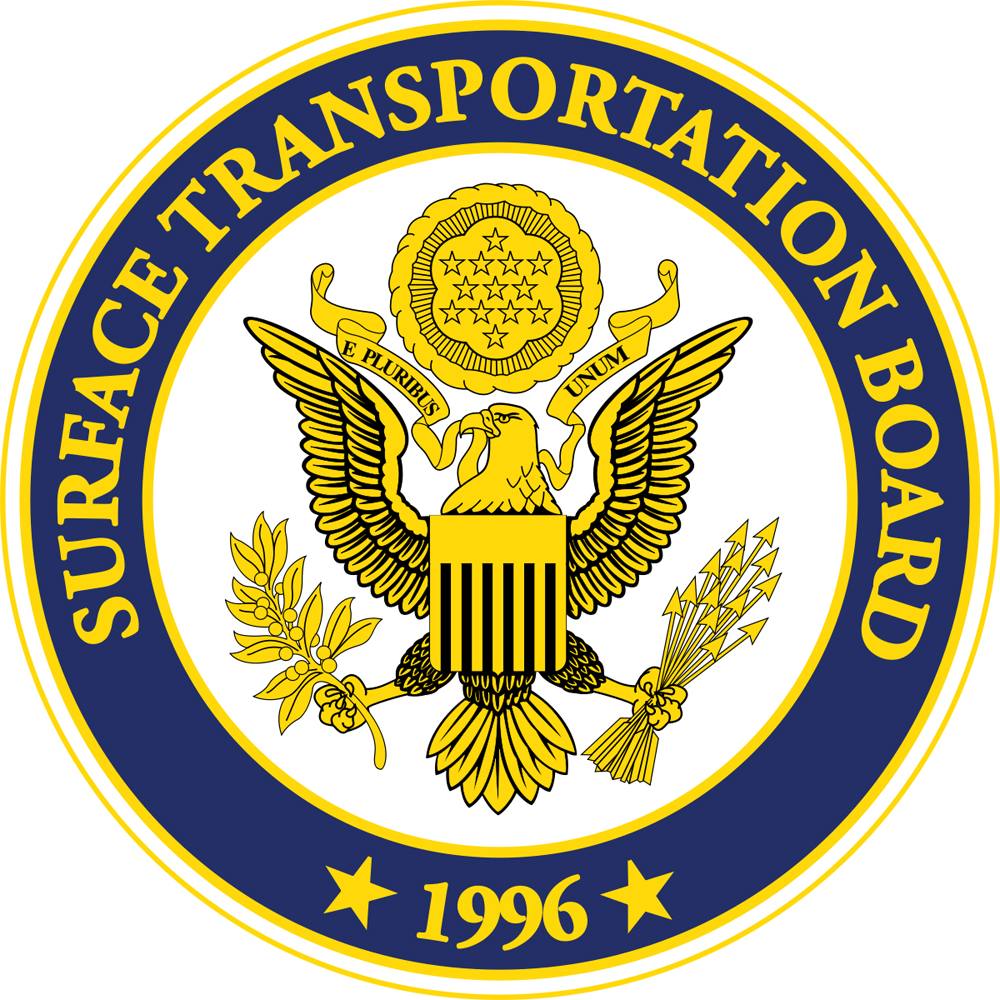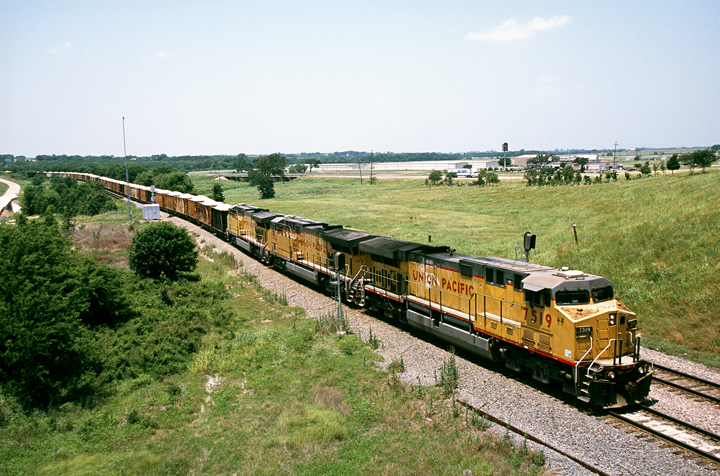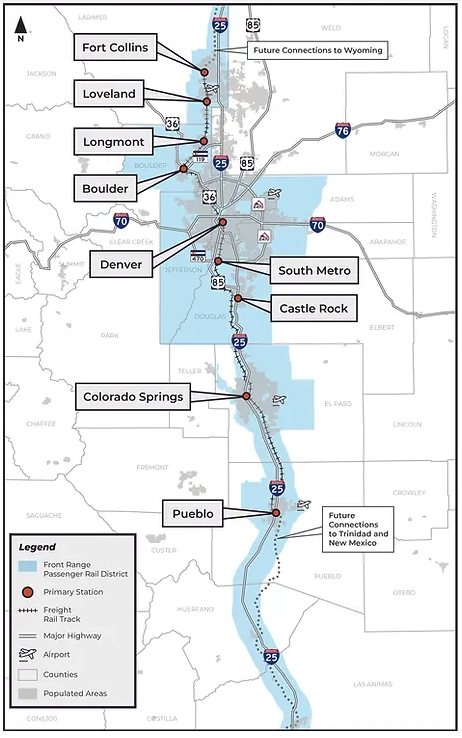WASHINGTON – The trade group representing sugar shippers has told federal regulators that rail service problems have forced some of its members to stop or curtail production of food and beverages.
 The Sweetener Users Association, which wrote to the Surface Transportation Board on Wednesday, is the latest trade group to complain about poor rail service as the Class I systems face a shortage of crews and locomotives.
The Sweetener Users Association, which wrote to the Surface Transportation Board on Wednesday, is the latest trade group to complain about poor rail service as the Class I systems face a shortage of crews and locomotives.
“Issues with switching have forced companies to reduce production in key product lines and shut down manufacturing facilities,” Richard Pasco, president of the Sweetener Users Association, wrote in his letter to the board.
Shippers and the nation’s largest food and beverage producers rely on railroads for bulk movements of sugar.
“Intermittent switches at the plants are not only causing it to take twice as long to get the bulk rail cars, but even when companies get them, they are not consistently switching them into the manufacturing plants,” Pasco wrote. “For example, a manufacturer may have 50 rail cars of sugar close to their facilities and still run out because the railroad is not switching them into the plants due to a lack of labor.”
The group also told the board its members are experiencing delayed shipments, increased dwell times, and bunched deliveries of carloads.
“Actual and threatened embargoes at customer destinations routinely hinder shipping cars,” Pasco wrote.
The trade group urged the STB to help solve ongoing rail service problems.
In the past few weeks the STB also has received complaints from shippers of ethanol and grain and feed. The mounting complaints from individual shippers, along with a deterioration of railroad performance metrics, has prompted the board to schedule a rail service hearing on April 26 and 27, with executives from BNSF Railway, CSX Transportation, Norfolk Southern, and Union Pacific ordered to attend.














Gerald.
A few articles back you made a statement about someone talking from the bottom of a certain orifice. I take it you are speaking from experience? What in the heck does SENIORITY have to do with whether a local serves a customer or not?
We all get it that you hate unions, and that all union railroaders are overpaid do nothings. But some of the things you say are just laughable if not aggravating.
I have been railroading for 27.5 years Gerald and, in that time, all of the locals I have seen are REGULAR JOBS, with ASSIGNED DAYS OF OPERATION, and have ASSIGNED CREWS! Where does seniority even play into this? Do you think these locals just get called willy nilly or on a whim and filled with crews out of the pool or extra board every day provided crews are available? You need to make yourself available Gerald to be hired, and then pack a bag for a month and see some of the stuff that goes on out here before you make some of the statements you make.
And while I know Al Dicenso is not always in favor of labor, his comment above is not that far off in my opinion. Everyone seems to be buying into this labor shortage, power shortage, traffic surge crap. While all three may be true to a certain degree, based on what I see out here day to day a certain percentage of those issues are also self inflicted.
Managment has pursued the ultimate OR come hell or high water. The entire industry not only cut away at the fat, they also cut into the muscle (Power, crews, etc.) in pursuit of that almighty OR. One CFO even stated this year that one of the “Must Haves” for 2022 is a 55.5 OR. Nevermind that your metrics are in the tank right now. Now the business has started to come back, and the industry has cut so deep they hesitate to put any muscle back on until its too late for fear of the OR going up a fraction of a point and upsetting Wall St.
Lets look at the main focus of PSR. Longer, fewer trains, fewer crews needed, closing yards, etc. Ill give you an example. A Chicago manifest train, pre PSR and carrying all west traffic, could reliably hit its destination yard 800 miles away in 24hrs. Now, with PSR, that train and many other manifest trains as well stop at every yard along the way to make pickups and setouts. Looks great on paper until you have four or five trains all stopped trying to work the same yard one train at a time. Now you are burning fuel while the trains are stopped, tying up valuable mainline space while they wait. Crews are going dead because they cant make it across the districts on their hours of service, and things come to a halt. Now you wind up burning a portion of your available crews dogcatching trains leaving fewer crews available to move other traffic. Not to mention outbound trains that are waiting at origination points but cant move because there is a lack of power off of the inbound trains to service and turn because the the inbounds are taking longer to get to their destinations. Like I said, in my opinion to a certain degree, a self inflicted power and labor shortage.
And that Chicago manifest? Well now instead of taking 24hrs, it takes 48 or more in many cases. Just how is that benefitting the shipper? So you bypassed a hump yard. Good for you. But what good is it if the time gained is lost while enroute? And how many missed connections are there due to trains not arriving on plan?
Thank you Mr.Bauer for explaining how things really are out on the rails today. My dad was an Engineer for L&N/CSX until his retirement in 1999. I remember how hard he worked and the long hours. He knew he had a good job so he stayed for almost 40 years. But I guarantee not just anyone could work like that. It’s easy for some folks on this site to sit back and blame the railroads problems on the actual workers. Especially when for some reason they have anti Union sentiments. Stay safe out there Brother. Chris Thompson, retired lineman, IBEW LOCAL 345
AMEN Steven Bauer! AMEN! And that’s why I went into Yard Service here in Grand Rapids. The road was insane. The layovers were insane. 5th out andf called on your rest? Why we deadheaded the crews ahead of you west!! And when you arrive at the away terminal you are 5th out! TRAINS FOR EVERYONE…and 12 hours later you’re called at Midnight…yeah, yard jobs, regular hours, home every night, two days off a week. Worked the yard here for 15 years…wasn’t alweays a hoot but we always got er done too!
It seems that railroads beg to be regulated again.
Or phased-out of existence. After all, that’s the best way to achieve the lowest operating costs.
The real “lack” is that of sufficient planning on the part of totally inept management.
I noticed some restaurants/fast food places were reporting shortage of certain fountain sodas. I didn’t connect it to sugar problems, but to local trucking/shipping.
This is new.
Recall when NS was formulating Triple Crown Service (to the tune of $40 million), the T&E crafts objected for fear TCS was cannibalizing current intermodal traffic. NS pledged to the crafts that the TCS service targeted new, truckload, door-to-door business requiring more crews, not fewer. No dice said the crafts. NS responded that if the crafts were unable to crew the TCS trains, when the first TCS trains were to be dispatched via NS in 30 days, NS was prepared to grant trackage rights to TCS. The RoadRailer trains were crewed by the crafts on day one. And was successful for several years. Costs to produce the service ultimately phased out the service.
If anything, you’d think local service would be the easiest for the RR’s to employee people on, except you have the seniority problem…so how to solve. Easy, create a separate internal RR exclusively for local service or contract it out. Working a job that allows you to go home every night is a lot more conducive to hiring than one that might have you on the road for several days.
GERALD — It was a few days ago, a retired T+E crew (sorry, don’t recall the name) posted on these page that nothing has changed in railroad employment since he hired on many decades ago. I think he said 58 years, something like that.
So tell me, in a world where all employers (even the miliatry) have had to update how they treat employees, why not railroads?
For me it’s not 58 years, it’s 42 since I entered the full-time work force. The stuff that happaned in the workplace back then wouldn’t be tolerated now. Like a woman employee sent home from my first place of employment for wearing culottes (not even pants).
For me its not really about going home every night. I’m fine with having to stay in a hotel for a reasonable amount of time. The problem is when you sit in the hotel for 24 to 30 hours then work a train home for 12 hours.
And then get called off your rest in 10 hours to go back out, and can’t mark off. Why am I spending more than a day sitting in a hotel waiting for a train?
I’m a 20 year man, it used to not be like this. You spun on both ends, but you could at least mark off when you need to.